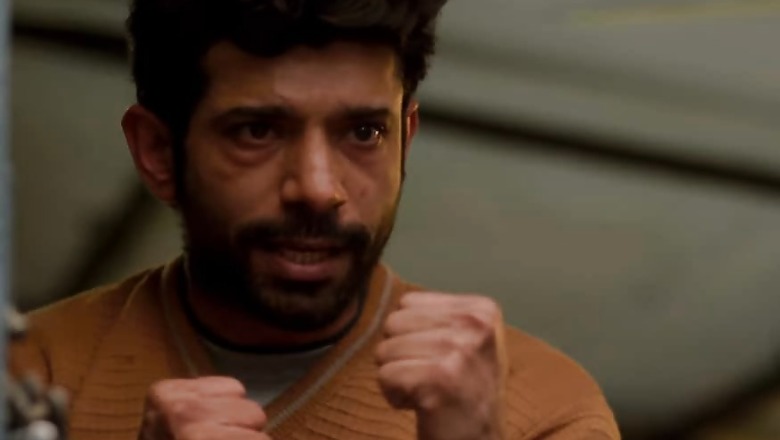
views
Cast: Vineet Kumar Singh, Jimmy Shergill, Zoya Hussain, Ravi Kishan, Rajesh Tailang
Director: Anurag Kashyap
Mukkabaaz, directed by Anurag Kashyap, is a film about many things at once. On the surface it’s a ‘boxing movie’, your classic underdog template. It’s also a heartfelt love story, a ruthless revenge saga, and pretty ballsy social and political commentary about our times. That’s a lot to stuff into a single film, and as a result it’s overlong and occasionally rambling. Yet, set in a world he knows inside out, and populated by characters that are authentic and rooted firmly in the landscape, the film sees Kashyap on solid ground.
Low-caste Bareilly boy Shravan Kumar (Vineet Kumar Singh) is the ‘mukkabaaz’ of the film’s title, an amateur boxer with ambitions to reach the national finals and become the Mike Tyson of Uttar Pradesh. Committed to making sure he doesn’t achieve his goal is the film’s villain, and the thorn in Shravan’s side, Bhagwandas Mishra (Jimmy Shergill), a gangster-politician and the head of the local boxing federation.
Mishra is the living embodiment of the cancer that plagues so much of India. An upper-caste Brahmin who exercises his superiority and power through violence and oppression. In Mishra’s book, belonging to a lower caste is a crime, and he revels in humiliating and exploiting those below him in the social order.
The far-reaching consequences of the caste system extend to the nature of the work handed down to Shravan when he lands a job in the railways department, and to possible opportunities in the sporting field. The film lifts the lid on the rampant corruption in Indian sports, the politicization of the selection process, and the pathetic training facilities and conditions that hamper the growth of many a promising athlete. Kashyap also seizes the opportunity to address the climate of religious intolerance, giving us scenes that depict the misdeeds of vigilante ‘gau-rakshaks’.
Meanwhile, love becomes a driving force when Shravan loses his heart to Mishra’s mute niece Sunaina (Zoya Hussain), and their relationship powers his struggle, and also the film from sinking into an abyss of darkness. Sunaina cannot speak but she doesn’t let her disability silence her. Theirs is a romance that is sweet, occasionally comical, and ultimately selfless; it’s one of the strongest tracks in the film.
Equally charming are the unexpected bursts of humor that serve as respite from the relentless intensity. A scene in which a desperate, hopeless Shravan flips out on his friend for talking in English is one of the funniest moments in Mukkabaaz. To the writers’ credit, these ‘light’ scenes feel organic to the narrative, and never bunged in just to ease the tension.
The film benefits also from some fine acting. Ravi Kishan is in very good form as the Dalit coach in Varanasi who trains Shravan for state championships, and the actor conveys volumes of backstory through a restrained performance. Jimmy Shergill’s one-note approach to the role of the despicable bully is a result of underdeveloped characterization, but the opposite is true for Zoya Hussain’s terrific portrayal of the brassy Sunaina, a part that has more to work with.
At the heart of the film is Vineet Kumar Singh who conveys both Shravan’s physical prowess and his emotional vulnerability with confidence and conviction. He captures Shravan’s urgency and hunger with incredible zeal as he punches, pounds, and clobbers his way on his journey from brawler to boxer.
At 2 hours and 35 minutes, Mukkabaaz overstays its welcome by at least 20 minutes, its narrative stretched by way too many background songs, and an inevitable sense of repetition and wallowing in the protagonist’s misery. Yet it might be Kashyap’s most accessible film since Gangs of Wasseypur, and his only crime here may be one of overreaching. I’m going with three-and-a-half out of five.
Rating: 3.5 / 5
What's your reaction to Mukkabaaz?
Write your review of Mukkabaaz
















Comments
0 comment